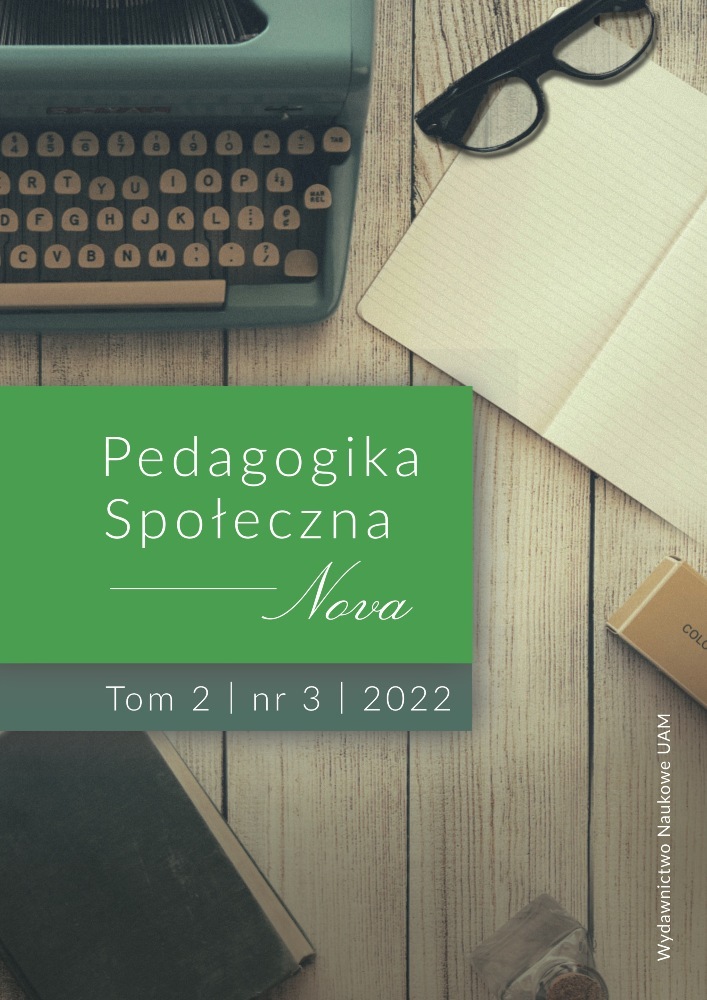Abstrakt
Neglect is a form of child abuse it is the failure of parents to redeem their obligation towards their children. In the novel titled: Things Fall Apart (henceforth TFA) written by Chinua Achebe, the protago- nist called Okonkwo suffers parental neglect, which of course led to his ultimate downfall. Okonkwo’s father, Unoka failed to give adequate parental care to his son as portrayed by Achebe in the novel and that parental gap acted as an inertia in Okonkwo’s tragic end. Through the application of trauma theory, this study examines childhood trauma and how it conditions the character in adulthood in African novel. The study adopts the discursive approach to textual analysis and observes that toxic masculinity is a product of poor parenting resulting in childhood traumatic experiences that culminate into the use of force, exploitation and victimization cum abuse of children and women as depicted in TFA. The study submits that Okonkwo’s childhood trauma in TFA is an unexplored fear that influences and conditions him even unto adulthood. This study opines that Okonkwo’s trauma is a site for extended traumatization of kin and that Okonkwo’s unhealed trauma finds expression in his survival antics. The study concludes that Okonkwo is a trauma patient and his success and failure in Umuofia is a product of trauma.
Bibliografia
Achebe C., Things Fall Apart, 1958.
Anyadike C., Listening to the gentle voice: rhetorical strategies in “Things Fall Apart”, [in:] C. Anyadike, K. Ayoola (ed.), Blazing the Path: Fifty Years of “Things Fall Apart”, Ibadan 2013.
Benezer G., Trauma Signals in Life Stories, [in:] L. Rogers (ed.), Trauma and Life Stories, London 1979.
Carey L., Expressive and Creative Arts Methods for Trauma Survivors, Philadelphia 2006. Caruth C., Unclaimed Experience: Trauma, Narrative, and History, Baltimore 1996.
Casper J., Wertheimer E., Critical Studies: Understanding Violence, Conflict and Memory in Every Day Life, New York 2016.
Ebim M.A., Critical Discourse Analysis of Narrative Processes in Chinua Achebe’s “Things Fall Apart”, “UTUENIKANG, Akwa Ibom journal of language and literary review” 2021, 1(1).
Ebim M.A., Terrorists or Tags? Contested Identities in Media Portrayal of Militants in Nigeria, “Journal of African Studies” 2007, 6(2).
Equiano O., The Interesting Narrative of the Life of Olaudah Equiano, London 1989.
Gagiano A., Achebe’s Children: Resonance Poignance, and Grandeur, [in:] C. Anyadike, K. Ayoola (ed.), Blazing the Path: Fifty Years of “Things Fall Apart”, Ibadan 2013.
Izevbaye D., Untold Stories: “Things Fall Apart” at the Turn of the Century, [in:] C. Anyadike, K. Ayoola (ed.), Blazing the Path: Fifty Years of “Things Fall Apart”, Ibadan 2013.
Larson R. C., The Emergence of African Fiction, Bloomington 1972.
Levire A., Trauma and Memory: Brain and Body in a Search for the Living Past, Berkeley 2015. Macdonald M., Suicide falls through the cracks a symptomatic reading of Achebe’s “Things Fall Apart”, [in:] C. Anyadike, K. Ayoola (ed.), Blazing the Path: Fifty Years of “Things Fall Apart”, Ibadan 2013.
Mcneill D., On Linguistic Memory, https://www.researchgate.net/profile/David-Mcneill-7/publication/259293738_On_Linguistic_Memory/links/02e7e52ad05061d747000000/On-Linguistic-Memory.pdf [accessed: 27.04.2022].
Nathaniel O., Onuoha O., Art Beyond Facial Value: of Metaphorization and Functionality of Sexual
Scenes in Selected Nigerian Short Stories in the Cyberspace, “LWATI: A Journal of Contemporary Research” 2017, 14(1).
Onuoha O., Experience as Art in Denja Abdullahi’s “A Thousand Years of Thirst”, [in:] Onyerionwu E.,
Bala I., Egbuta C.O. (ed.), Of Foot-Soldiers and Hybrid Visions, Ibadan 2020.
Onuoha O., The Interface Between Self, History and Literature in Chris Anyokwu’s “Naked Truth”, “Journal of Languages Linguistics, and Literary Studies” 2018, 5.
Soyinka W., Death and the King’s Horseman, 1975.
Van der Kolk B.A., Fisler R., Childhood Abuse and Neglect and Loss of Self-Regulation, “Bulletin of Menninger Clinic” 1994, 582.
WHO, Report of the Consultation on Child Abuse Prevention, 29–31 March 1999, Geneva 1999.

